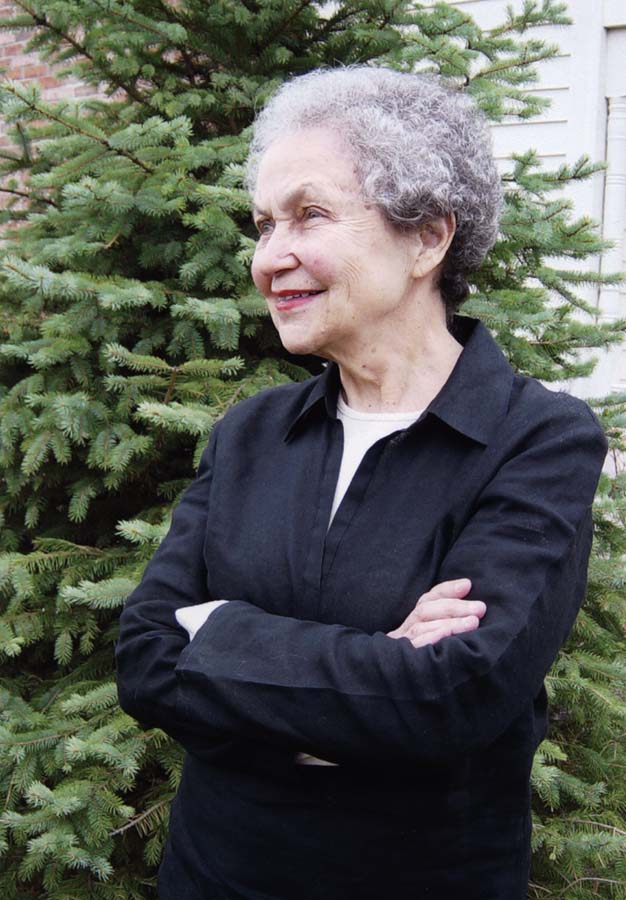Remembering Vivian Paley (1929–2019)
Vivian Gussin Paley worked for nearly forty years as a preschool and kindergarten teacher and was a dear friend to the Press. Her books about young children include The Boy on the Beach, Boys and Girls, and A Child’s Work. We were sad to learn of her passing this week, and we would like to share this obituary provided by her family.

About Vivian Paley
Vivian Paley was a keen observer of young children who defined a key tenet of how children should negotiate relationships at the Laboratory Schools and on the playground in general: You can’t say you can’t play.
Ms. Paley, who spent most of her nearly four decades teaching at Lab, wrote a dozen books about children based on her experiences in the classroom. Paley was Lab’s most prominent example of Lab teachers who contribute to academic scholarship in the area of education.
Ms. Paley was recognized for her work with a 1989 MacArthur Fellowship from the John D. and Catherine T. MacArthur Foundation. The award recognizes outstanding people from a variety of fields for their creativity.
In Ms. Paley’s case, the prize recognized her special contributions to education, which included developing a “story playing” technique that helps teachers understand the ways in which children’s natural interest in fantasy can be used to help them learn. Stories, which students can tell or act out, play a central role in children’s growth, she contended. In particular, Ms. Paley was interested in issues of fairness and the ways in which students understand the concept.
Among themselves, children tell and act out fantasies to describe their feelings and ideas, she wrote. “We call it play. But it forms the primary culture in the classroom. Fantasy and storytelling are the abstract thinking of the young, carrying a deeper sense of reality than could any form of adult thoughts,” she explained.
Ms. Paley’s research focused on the ways youngsters grow socially as well as intellectually. Her books include You Can’t Say You Can’t Play (1993), The Kindness of Children (1999), and A Child’s Work: The Importance of Fantasy Play (2004).
She also took on difficult topics, including the role of race in the classroom, which she explored in Kwanzaa and Me (1995). That book and others received critical acclaim.
Psychologist David Elkind, who came to the Laboratory Schools in 1992 as part of a two-day conference on parenting, wrote in The New York Times about Ms. Paley’s work: “Vivian Paley is an artist whose medium is children in the classroom. The end product of her year’s work is a group of children who can live comfortably with themselves and with one another.”
Vivian Paley was born January 25, 1929, in Chicago. She received her PhB from
the University of Chicago in 1947 and a BA in psychology from Newcomb College
in 1950. She began her teaching career in New Orleans in the 1950s, and later
in Great Neck, New York. It was during her time teaching in New Orleans that
she began to reflect on some of the ways in which childhood learning at the
time was being choked by an overemphasis on strict learning boundaries (e.g.,
that children could only be allowed to learn how to write in capital letters,
not lower-case) and perfunctory memorization. While teaching in Great Neck, she
began to reflect on how play can be the “most usable context” for
interaction and intellectual growth among kindergartners. This view, however,
flew in the face of what many early childhood education teachers thought at the
time, that with the rise of television’s easily accessible portrayals of
violence, children were becoming too intense and restless, and if anything,
needed more vigilant limits on playtime
After receiving her MA from Hofstra University in 1962, she returned to
Chicago, where she dedicated the rest of her teaching career. It was during the
1970s that she began writing books on early childhood learning. Paley received
many awards including the Erikson Institute Award for Service to Children in
1987 and the John Dewey Society’s Outstanding Achievement Award in 2000. In
1997, Paley’s book, The Girl With the Brown Crayon was awarded
the Harvard University Press Virginia and Warren Stone Prize for the
outstanding book about education and society. In 2004, Paley was named
Outstanding Educator by the National Council of Teachers of English.
She is survived by her husband, Irving, and her son, David. She was predeceased by her son, Robert.
The funeral service will take place this Thursday, August 1, at 1 p.m. at Congregation Rodfei Zedek, 5200 S. Hyde Park Blvd. Interment follows at Oakwoods Cemetery, 1035 E 67th St. There will be a shiva gathering with friends and family and colleagues, after the internment, back at the synagogue beginning at 3:30 p.m.